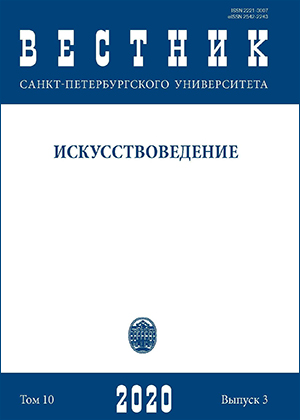“The Silver Age” Spiritual Culture as the Foundation of the 125-year Development of the Gnesin System of Education
DOI:
https://doi.org/10.21638/spbu15.2020.308Аннотация
In this article, the 125-year history of the Gnesin system of musical education is examined. The thread that runs through its long history is the spiritual culture of the Silver Age with its traditions, values, outstanding teachers, as well as both performers and talented leaders. The Gnesin family highly valued the concepts of the Silver Age. They managed to create an inimitable system of musical education that is marked by its patriotic way of thinking, devotion to music, and loving attitude towards students. The article focuses on the figure of Elena Gnesina who was drawing herself on the high spiritual culture of the Silver Age and devoted herself entirely to the music, demonstrated her commitment to the students, and protected them even in the most difficult times regardless of the social environment: revolutions, the First and Second World Wars. The passion for her work, which Gnesina demonstrated throughout her 72-year life, has been reverently passed from generation to generation by the Gnesin system’s teachers. Nowadays, all educational institutions — the school, two colleges and the institute —continue to accumulate spiritual traditions, constantly giving rise to new fields and profiles of professional education that respond to the challenges of the time and strengthen the position of the Gnesin system of education both in Russia and abroad.
Ключевые слова:
spirituality, music, art, values, traditions, the Silver Age, creation, education, the Gnesin system, Elena Gnesina
Скачивания
Библиографические ссылки
Загрузки
Опубликован
Как цитировать
Выпуск
Раздел
Лицензия
Статьи журнала «Вестник Санкт-Петербургского университета. Искусствоведение» находятся в открытом доступе и распространяются в соответствии с условиями Лицензионного Договора с Санкт-Петербургским государственным университетом, который бесплатно предоставляет авторам неограниченное распространение и самостоятельное архивирование.






